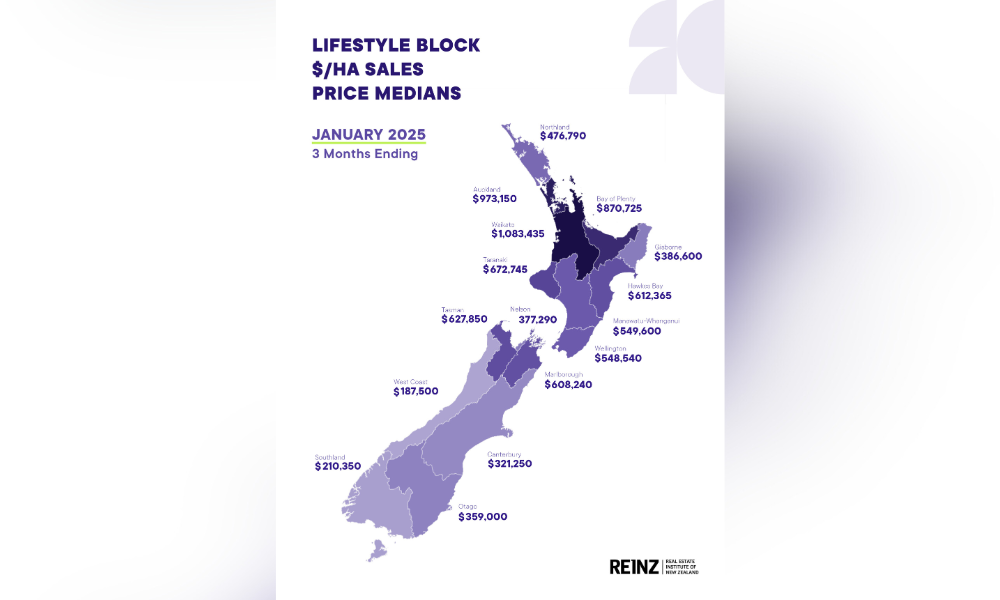Sales decline but annual growth remains strong, says REINZ

The latest Real Estate Institute of New Zealand (REINZ) report shows that New Zealand’s lifestyle property market experienced a seasonal dip in sales for the three months ending January, with 1,390 lifestyle properties sold – down 10.1% from the previous quarter.
However, annual sales rose by 17.3% compared to the same period in 2024, reflecting continued interest in lifestyle properties.
Over the past year, total lifestyle property sales reached 5,916, marking an 11.6% increase from the year ending January 2024. The total sales value climbed to $6.65 billion, showcasing steady demand in this niche market, REINZ reported.
Rising median prices amid regional variations
The median price for all lifestyle properties rose to $984,250 in the three months ending January, up 4.2% from the previous year. Notably, bare land lifestyle properties saw a 9.1% increase to $450,000, while farmlet properties rose by 5.2% to $1,115,000.
Regional trends revealed price increases in eight regions, with the West Coast (+28.9%) and Northland (+24.1%) leading the growth.
In contrast, Southland and Nelson/Marlborough/Tasman recorded the steepest price drops at -19.0% and -14.2%, respectively.

Mixed sales activity across regions
Sales activity varied significantly across regions. Auckland, which saw increased activity at the start of the year, experienced the highest increase with 70 more sales compared to January 2024, followed by Waikato with 61 additional sales.
However, Nelson/Marlborough saw the largest decline, with eight fewer sales compared to the same period in 2024.
Three regions recorded sales growth compared to the three months ending December, showing localised demand fluctuations.
Longer selling times but sustained demand
The median selling time for lifestyle properties increased by five days to 69 days compared to the previous year, REINZ reported.
Canterbury recorded the shortest selling period at 56 days, while Northland properties took the longest, averaging 95 days on the market.
Despite seasonal slowdowns, REINZ noted continued strong demand, particularly in regions with solid infrastructure and long-term investment potential. The positive annual growth and rising prices in many areas suggest ongoing buyer confidence in New Zealand’s lifestyle property market.
Outlook: Sustained interest amid economic changes
Although sales declined in late 2024, demand for lifestyle properties remains strong.
According to PGG Wrightson Real Estate, demand for lifestyle properties in New Zealand is driven by urban escape, remote work flexibility, child-friendly living, affordability, and a growing supply of rural properties.
REINZ anticipates sustained interest in lifestyle blocks, supported by regional price trends and evolving buyer needs.



